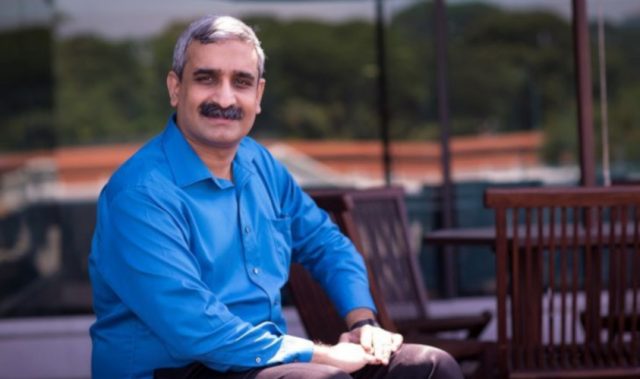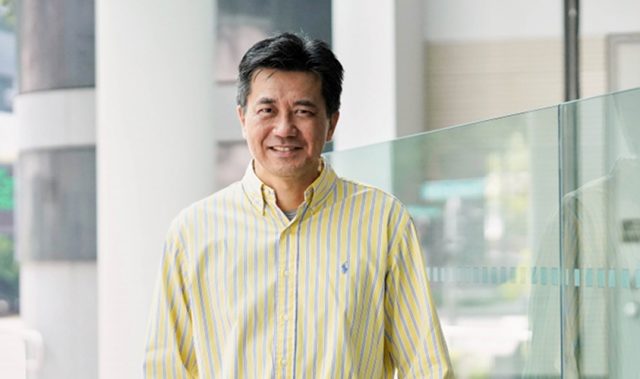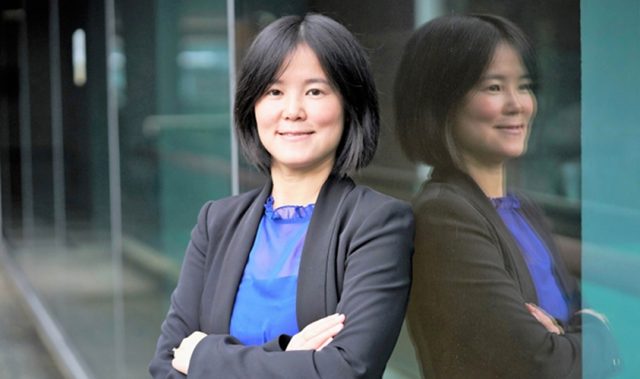
AsianScientist (May 2, 2014) – By Dora Yip – Pandemics, poverty, financial volatility and climate change. Against a growing swirl of threats, opportunities for new ways of addressing them abound. But governments alone may not have the capacity, resources and foresight to act upon them swiftly.
Ann Florini, Professor of Public Policy at the Singapore Management University (SMU) School of Social Sciences, believes that a new problem solving approach to safeguarding the future is emerging, one that includes the participation of businesses and Non-Government Organizations (NGOs).
Interplay between government, business and civil society
Previously a senior fellow at The Brookings Institution in Washington, DC, Professor Florini was drawn to Asia because of the region’s dynamic experiments with new approaches to address major issues. There are plenty of studies that document the gravity of economic, environmental and social challenges, but much more rigorous research is needed to identify what works and what does not.
“Academics can make an enormous contribution in this space. The many problem solving experiments already underway need to be studied, and perhaps replicated. The most promising new types of governance are partnerships that bring together unlikely bedfellows from the government, business and people sectors,” she says.
But these are difficult studies to do. For example, to find out if a collaboration has a good chance of succeeding, researchers must also consider a myriad of social and legal factors, such as corporate law and support systems that enable NGOs to operate in each country. And even then, there is no guarantee of success.
“Research has shown that one of the biggest obstacles to tri-sector collaboration is that each sector doesn’t know how to speak to the other,” says Professor Florini. “They don’t know how to institutionalize those partnerships, and the success of partnerships often depends on the individual staff involved. As soon as these staff leave, the partnership dissolves. I thought it was crazy that no one is training people to work together across the sectors,” she notes.
Citing industry leader Unilever as an example, Professor Florini explained how several years ago, the company realized that major global challenges – ranging from environmental degradation to social exclusion – could threaten their future markets. To address this, they developed a Sustainable Living Plan, which aspires to double the size of their business while halving their environmental impact. “This is the sort of transformation that needs to happen,” she says.
To extend such thought leadership to other organizations, Professor Florini developed a new curriculum at SMU called the Master of Tri-Sector Collaboration to train much-needed “social intrapreneurs”.
She explains SMU’s motivation for starting this program: “The last few decades have seen the rise of social entrepreneurs. However, there is a huge inertia built in companies, governments and large NGOs. Unless we bring about transformational change within these organizations, we won’t see a change in society. We need people inside these organizations – social “intrapreneurs” – to be able to lead this transformation.”
With the pioneer cohort currently undergoing training at SMU, Professor Florini sees Singapore as a useful research test bed. “The Singapore government is realizing that tri-sector collaboration, or as they term it, 3P (public, private and people sectors) partnership, is needed,” which accounts for the recent proliferation of 3P divisions in government bodies.
While the scope of Professor Florini’s research is not for the faint-hearted, she has found some room for optimism. “The tri-sector collaboration space provides an extraordinary scope for innovation in collective problem solving,” she says. “It is open to anyone who cares. You just have to pay attention to how your organization can connect to problems that affect you.”
Take the haze affecting the region for example. Although little breakthrough has been achieved through inter-government processes, significant progress has been made through a collaboration among NGOs Greenpeace and The Forest Trust, and several companies including Golden Agri-Resources, on establishing a common understanding of the steps that need to be taken to minimize palm oil deforestation.
“This collaboration has the potential to solve the haze issue and take into account smallholders’ livelihoods. To my surprise, it has been more successful than government partnerships,” Professor Florini says.
Global energy governance
Professor Florini’s research also looks at energy issues, which she says underlie most of the major problems that the world is grappling with today.
“The flash points in the world are based on competition for fossil fuels. We are at the point where easy and readily accessible fossil fuel has been extracted, and we are now exploring deep under the ocean and in the Arctic, where international property rights are not well-defined,” she says.
One striking inequality is that the energy consumption needs of the world’s top one billion are not compatible with the rest of the world.
“If all the seven billion people in the world had the same energy consumption pattern as the top one billion, the resulting pollution would make today’s Beijing look like a clean and clear city,” she muses.
With energy being one of the worst-governed sectors, coupled with deeply embedded processes and financial flows perpetuating the status quo, it is clear that transformational change is needed.
Rethinking capitalism
Growing out of these two strands of research, Professor Florini is now embarking on an interdisciplinary project on how capitalism is evolving in Asia: how businesses can become deeply socially responsible and still remain financially profitable.
She sees potential for joint research with other social scientists and practitioners in Singapore and throughout Asia, to study how businesses are fundamentally changing in the way they understand themselves.
“We need to look at what China is doing, for example. How do businesses see their role in Chinese society? That kind of expertise is badly needed,” she observes.
What motivates her to carry on searching for solutions despite the seemingly insurmountable problems facing the world today?
“I care so much because government action alone clearly will not solve these big problems, although it may codify solutions. Yet there is so much innovation in partnerships and new business models that no one can even keep track of it. That’s where the potential is for rapid and transformation change,” Professor Florini concludes.
Asian Scientist Magazine is a media partner of the Singapore Management University Office of Research.
——-
Copyright: SMU Office of Research. Read the original article here; Photo: Cyril Ng.
Disclaimer: This article does not necessarily reflect the views of AsianScientist or its staff.












